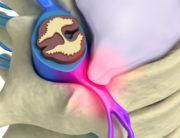Chances are fairly good that at some point in your life, you will need to file a car accident claim. Knowing what steps to take and what to expect at each stage of the car accident claims process can help you rest a little easier in the wake of your accident. Plus, the more you know about the claims process and your rights and responsibilities, the better informed you will be to make smart decisions when working through your claim and the better your chances will be at securing a fair settlement.
Below is a brief, generalized overview of the process of filing a car accident claim after a collision. To discuss the specifics of your accident with a car accident lawyer in Fort Lauderdale, call the Montero Law Center at 954-767-6500 and request a free consult.
Informing the Insurance Company about the Accident
After you have obtained the immediate medical care you need and have reported your accident to the police, you will need to inform your insurance company about your accident. You should provide your agent with basic information about your crash and about the other involved parties.
Florida is a no-fault insurance state which means that whenever you are involved in an accident, you generally file a claim with your own insurer, regardless of who was at fault for the accident. States like Florida employ no-fault rules in order to reduce the number of auto accident liability cases that bog down the civil court system. You can file a claim with own insurer to recover your medical expenses and replacement benefits under your personal injury protection (PIP), a mandatory coverage for all drivers in the state.
However, if you sustained permanent injuries, became disfigured, or lost the use of an important body function because of the crash, you can opt out of the no-fault system and file a claim or lawsuit against the at-fault party instead. If you file with another insurer, you will need to call that company to inform them of the accident and begin the claims process.
Note: you do not want to agree to give a recorded statement with the insurer until you have run your case by an attorney. If the insurance adjuster requests one, politely tell them you need to speak to your lawyer first and you will call them back at a convenient time in the near future.
Discussing Your Options with a Lawyer
It is also highly advantageous to run your case by an attorney. Your attorney can explain exactly what your legal options are given your particular circumstances, and which route might work best for you. Do you file with your own insurer or the other driver’s? What specific damages can you recover? Do you have grounds and ample proof to file a lawsuit for fuller recovery? A qualified car accident attorney can answer these questions and more, and ensure that when all is said and done, you have the highest settlement check possible.
It is also prudent to note here that legal costs generally are not a concern for car accident victims because most personal injury attorneys offer free consultations and do not charge you until they help you secure a settlement. Given there is zero risk on your part, it simply makes good sense to have a legal professional review your case and give you his two cents.
Collecting Information & Conducting an Initial Investigation
You will also need to start collecting all pertinent info and documents related to the accident, your injuries, and your expenses. This step is critical for substantiating your claim and ensuring you are adequately compensated for all of your losses. Some of the information you will want to compile includes the following.
- The police report
- Contact information about the other involved parties and eyewitnesses
- Photos and video of the accident scene, the damaged vehicles, and your injuries
- All of your medical records, including test results, prognoses, doctors’ input, and treatments
- All of your bills and receipts related to the crash, including medical bills, car repairs, transportation costs to your medical appointments, etc.
- Proof of lost wages
During this phase of the process, your attorney will also be conducting an investigation. He might speak with witnesses, work with field experts like accident reconstructionists or medical experts, begin tallying your damages, and collect various types of evidence that can help prove liability and damages.
Continuing with Medical Treatment
From the onset, you will need to continue with whatever medical treatments your doctor has recommended. This is vital not only for your health, but also to support your claim. Failing to get evaluated, procrastinating with your treatments, skipping appointments, or doing things the doctor has told you that you should not do (like lifting heavy objects despite your back injury) might give the insurance company grounds to refute your claim, not to mention slow your healing or lead to health complications.
For any car accident claim, it is always the best policy to stay on top of your treatment and document everything you can along the way. If you are working with our firm and are struggling to pay for medical bills before you get your settlement check, we can work with your doctors and provide them with what is called a Letter of Protection. This is essentially an IOU that tells the provider that you will make good on your payments as soon as you receive your settlement.
Assessing Settlement Offers
After you, your doctors, and your attorney have a clear picture of your injuries, future treatment needs, and the extent of your damages, your attorney can put together a settlement package and begin negotiations with the insurance company.
If the insurer tries to offer you a settlement directly, it is wise to have your lawyer assess it before you sign anything. Initial settlement offers may not include all of your expenses, and the insurer might try to lowball you. If you sign an offer prematurely, you cannot go back and ask for more money later if your condition worsens or if you need to take more time off of work. Let an attorney assess your offer first and provide you with counsel about its sufficiency.
Receiving Your Settlement Check
When you and your attorney have reached a fair negotiation with the insurer, the insurance company will generally issue you a check fairly quickly. After you have satisfied your legal fees, you will then be able to use your settlement to pay off your expenses and account for your future needs. If your settlement is substantial, you may want to work with a financial professional to help you manage the funds appropriately so that your future needs will be covered.
Of course, if your claim cannot be resolved amicably with the insurer or if the policies do not adequately cover your damages and tend to your car repairs, you and your attorney can file a liability lawsuit in civil court. If you have to go this route, your lawyer can explain the court process, how to prepare, and what to expect.
If you were recently in a wreck in Fort Lauderdale, call the Montero Law Center today at 954-767-6500 and schedule a free consultation.
 English
English  Español
Español 




